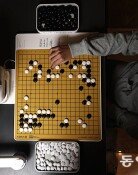A nation that does not give up its people
A nation that does not give up its people
Posted May. 02, 2023 07:54,
Updated May. 02, 2023 07:54

When Mongol Empire invaded Goryeo, their most possessed exploitation was people. They captured young and healthy men and women and sold them as slaves. Even after a peace settlement was reached and the war ended, it was not easy to bring them back. Bringing back slaves was possible only after paying the price.
Some people in Goryeo were captured by the Japanese. Jeong Mong-ju started a fund-raising campaign on officials claiming that their capture was held accountable by the country and its rules. This campaign was successful, and many Goryeo people returned to Korea. However, this was a very rare case.
People captured by the Qing Army during the Qing Invasion of Joseon staged a protest in Shenyang, where Crown Prince Sohyeon was residing, when the government turned a blind eye to them. Crown Prince Sohyeon used his own money that he acquired through trade to free them and built farms to raise money. He planned to keep raising money to free the people. On the contrary, he was suspected by his father on account of building up his army to take over his father.
Some Joseon soldiers became prisoners to the U.S. during the U.S. expedition to Korea. There was even a soldier who underwent an amputation surgery by the U.S. Army surgeon when his leg became injured. The U.S. Army suggested to Joseon to discuss prisoner exchange, but the Korean government refused. According to Joseon law, those captured as war prisoners were considered to have succumbed to the other side, thus subject to capital punishment. This was general practice in China and Japan in ancient times, but it was the late 19th century for Joseon. I recall being furious when I became aware of this historical fact when I was in college. Later, I learned that the U.S. set the prisoners free in Joseon. The government did not kill them. I was still furious, though.
Korean history shows the government’s position towards prisoners of war had been absurd. These wrongdoings cannot be blamed simply by the ignorance of the ruling class. Even those in power could not do anything to save their relatives. Mostly this helplessness was caused by the lack of national power. Recently we saw the return of Korean people amid the civil war in Sudan. Action by the nation cannot be done by will alone. Capability is key as well. Much time has passed, and Korea has become stronger. The international society remains a jungle, while justice without capability falls on deaf ears.





![[오늘의 운세/2월 27일]](https://dimg.donga.com/c/138/175/90/1/wps/NEWS/IMAGE/2026/02/26/133425477.1.jpg)
![[사설]계엄 때보다 낮은 지지율 17%… 국힘의 존재 이유를 묻는 민심](https://dimg.donga.com/c/138/175/90/1/wps/NEWS/IMAGE/2026/02/26/133433702.1.jpg)
